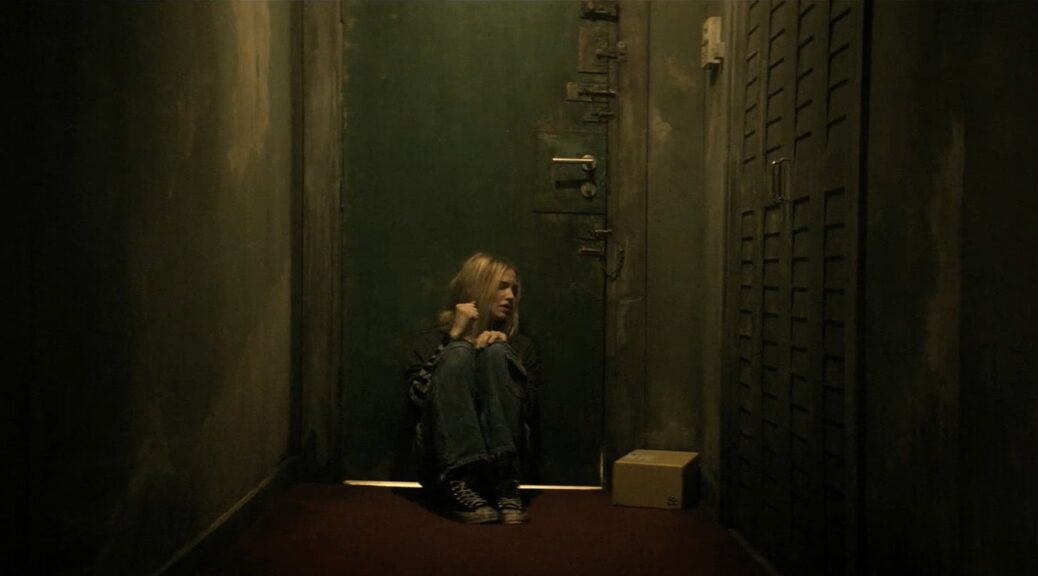Latency
by Hope Madden
A descent into madness horror that relies almost entirely on two performances, writer/director James Drake’s Latency makes effective use of his single location to amplify themes and create tension.
Sash Luss is Haha, an agoraphobic professional gamer with a lot to lose. She’s months behind on rent, for one, and the last thing an agoraphobic needs is to have to find a new place to live. So, when she gets the chance to test new gear that enhances performance—which she can use to win a high stakes tournament before anyone else gets ahold of the tech—she jumps.
But the mind meld gear exacerbates some troubling aspects of Hana’s mental health, kicking off a rapid deterioration that blends memory with video game until she’s not sure what’s real and what’s not.
Latency feels a bit like a gamer’s Repulsion. Instead of mining sexual hysteria as Polanski did, Drake digs into the way seclusion and technology can intensify trauma and deepen mental illness.
Alexis Ren injects Latency with needed cheer and color, but it’s Luss who anchors the film. She’s in every scene. It’s a demanding role that asks, for instance, for magnetism while staring listlessly at a video game you can play with your mind. The arc of the character is dizzying and Luss can’t always deliver. While she transmits the fear and much of the regret authentically, the madness never feels quite mad enough.
The scares aren’t especially scary, either, but the narrative’s game like quality does build a sense of existential horror. Still, though the video game quality of the aesthetic cheats the need for realistic horror images, they’re still missed.
The film sees agoraphobia as a kind of macabre, inherited coping mechanism. But there’s something honest in the nightmare of days disappearing into other days, a timeless malaise of hyper-isolation.

